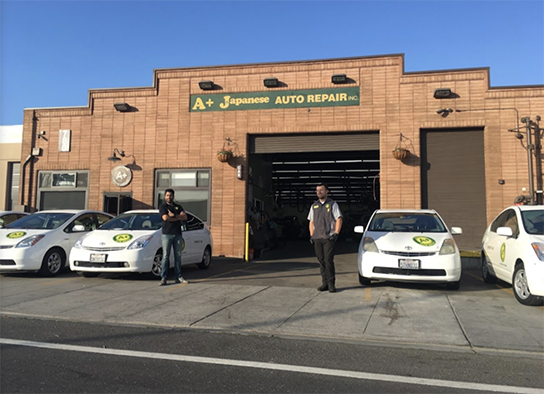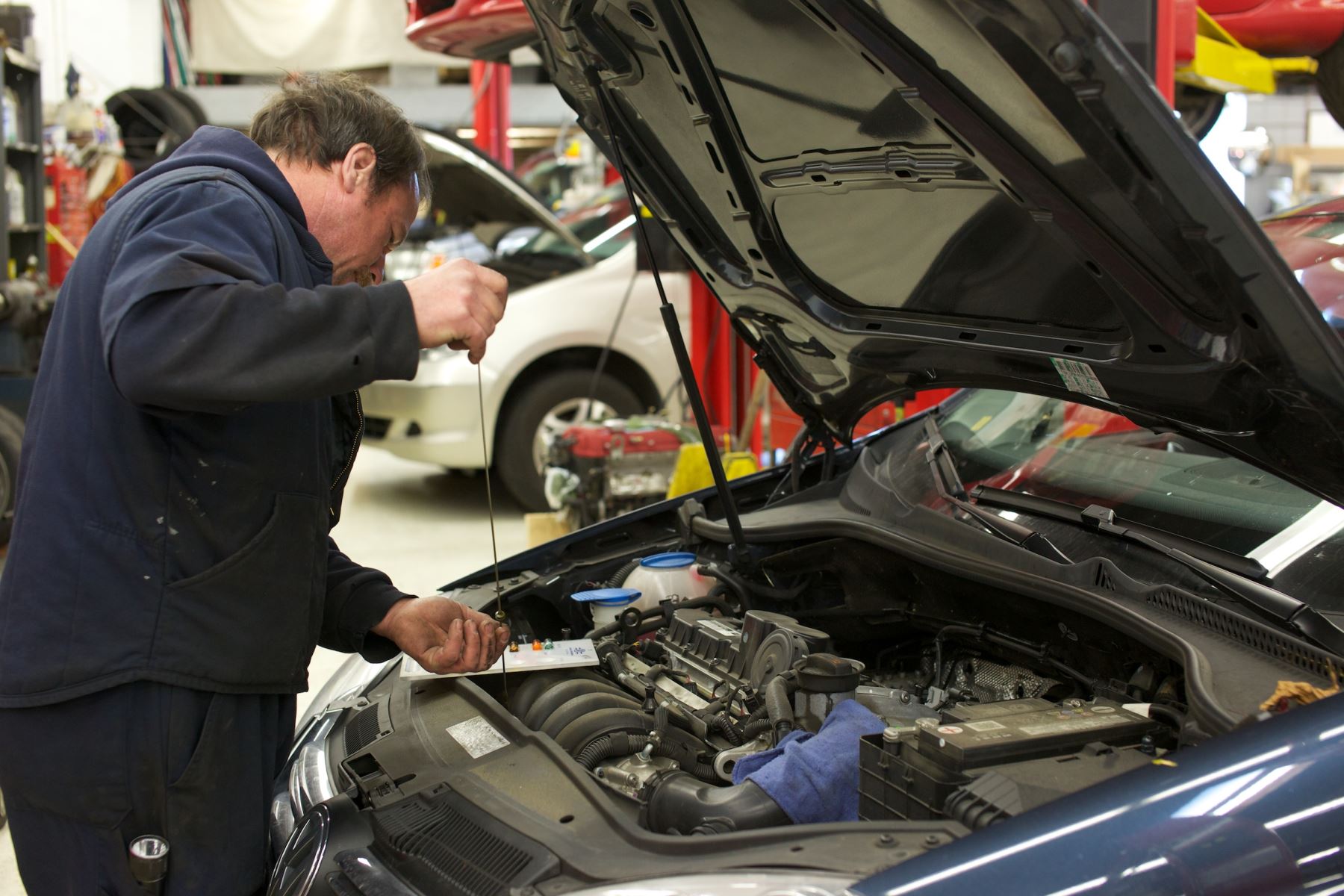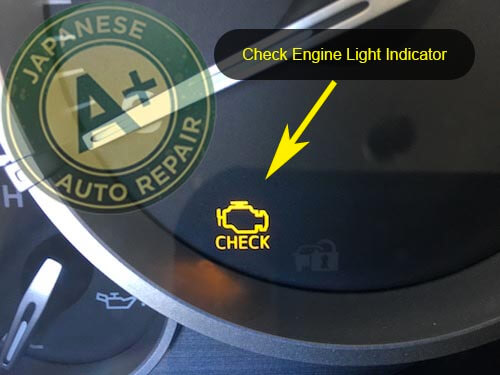Posted on 4/1/2020
We can officially say goodbye to winter, as spring is officially here! Spring means falling leaves, golden rays of sunlight peeking out behind the clouds, and of course, spring cleaning. The team at A+ Japanese Auto Repair doesn’t want you to forget about your vehicle this spring. During winter, your vehicle accumulates a massive amount of dust and debris. Spring is the perfect time to give your car a thorough cleaning. Here are some tips and tricks for spring cleaning: Start with the outside: Make sure to scrub your tires with a tire-cleaning spray and brush. Wash your vehicle bumper-to-bumper. We recommend washing your car twice in a row. Don’t forget about the underbody of your vehicle. A lot of debris and dirt can gather on your car’s underbody during wintertime. Dry your vehicle with a microfiber cloth when all finished. Now, you’re ready for your vehicle’s interior: Ca ... read more
Posted on 3/20/2020

COVID-19 - The New Normal - A+ Japanese Auto Repair in San Carlos If you need auto repair in the San Carlos area, here is what we have changed: * Free Pick-Up & Delivery with sanitization on each vehicle - we offer free vehicle pick up and delivery from your home or work. If you need to use one of loaner cars while we are working with your vehicle, let us know that too! * "No-Touch" - Client Drop-Off / Pick Up Service - you can also bring the vehicle down to our shop at 780 Industrial Road, San Carlos CA 94070. Utilize our "no-touch" service where your keys and all of your interactions handled at a safe distance or fully electronically. Click here to watch the video on how to do t ... read more
Posted on 3/1/2020
Your tires are the only thing that maintains contact with the road. As you can imagine, they are essential to your safety on the road as you drive through San Carlos. Some tires require specific makes and models, and each tire has a different price and purpose. No tire is equal. The team at A+ Japanese Auto Repair is here to help you understand your tires. Here are five things that every car owners need to know about tires: Price: Usually, with tires, you get what you pay for. There are many suppliers out there that offer excellent tires at an affordable price. If the price of a tire seems too good to be true, don’t hesitate to ask our team. We can also point you in the right direction if you have any questions about tires. Different Cars: When you purchase your car, it will come with a specified set of tires designed for your vehicle’s brakes, smooth handling, or steering response. If you decide to replace your tires with new ones, you wil ... read more
Posted on 2/1/2020
There are several fluids running through your vehicle’s engine. Each fluid plays an important role in keeping your vehicle running safely and smoothly. Your fluids will prevent both engine wear and damage, along with saving you both time and money in the long run. Here are 7 fluids that need to be properly maintained: Your engine needs oil to keep the moving parts in your engine lubricated. Radiator fluid keeps your engine from overheating. Transmission fluid keeps your transmission properly lubricated, preventing expensive issues in the long-run. Your power steering system allows you to control your vehicle’s wheels, and power steering fluid keeps this system performing in tip-top shape. Your brake fluid adds power to your brake system to make sure you can safely stop and not run into any vehicles. When the weather starts getting warmer, you will want to make sure that you have enough coolant. This way, your air conditioning system ... read more
Posted on 1/1/2020
In cold weather conditions, your car has to work much harder. It takes much longer for your engine to reach fuel-efficient temperature, especially if you are making several short trips. Heated seats, window defrosters, and heater fans use additional power as well, adding to winter just not being a fuel-efficient season. Your battery is working harder too -- your battery’s performance decreases in cold weather, so it is especially hard for your alternator keep your battery charged. With all this being said, there are several tips and tricks you can use to maximize your car’s fuel economy in the winter: If you can, park your car in a warmer place, so you can increase the initial temperature of your cabin and engine. Combine trips so you are driving less often with a cold engine. Don’t let your car idle more than 30 seconds to warm it up. Your engine actually warms up faster while you drive. Minimize your use of seat warmers or defroste ... read more
Posted on 12/1/2019
The holidays are one of the busiest times of the year. The team at A+ Japanese Auto Repair are here to make sure you stay safe during the holidays, especially with holiday traffic. The roads will be absolutely packed, which is why the team at A+ Japanese Auto Repair has put together a few tips and tricks to keep you safe on the road during holiday traffic: 91% of holiday travel will be completed by personal vehicles, which means the roads will be packed with drivers frantically getting to their destination. It is important to be mindful of this. Plan your route ahead of time. Many apps allow you to input your address ahead of time to see which routes are the safest and fastest. You can even input your desired arrival time, and these apps will tell you when to leave to make it there on time. Decide when you want to leave. Leaving a few days before Christmas can save you a headache and allow you to spend much-needed time with your loved ones. Prepare for the long li ... read more
Posted on 11/20/2019

5 Things You Must Check Before You Take A Road Trip (Includes Photos) Before embarking on a road trip in your car, there are 5 things you must check on your car. The items below won’t take more than 10 minutes and it could save you from a breakdown and a ruined trip! Check Lights, Fluids, and Tire Pressures - I am a mechanic by trade at A+ Japanese Auto Repair in San Carlos, CA https://aplusjapaneseautorepair.com/ and more often than not, I find cars that have issues with their lights, fluids, or tire pressures. Below I will walk you through the steps of checking your lights, fluids, and tire pressures. Lights - When checking your vehicle’s lights, I am referring to the exterior lights. Start by have someone sit in the car and start it. One at a time have them push the brake pedal (check the brake lights), turn on the blinkers (check in front an ... read more
Posted on 11/1/2019
At A+ Japanese Auto Repair, we can’t emphasize the importance of preventative maintenance enough. If you bring your car into our facility for preventative maintenance, you can save money in the long-run by preventing potentially expensive and dangerous repairs. Here are 10 of the most preventable auto repairs: Transmission Replacement: Routine maintenance, including an inspection of your transmission fluid, can prevent you from being dealing with a transmission replacement. Cracked Head Gasket: Your head gasket keeps your coolant from mixing with your engine oil. If it cracks, coolant would flood your engine and damage other parts of your vehicle. Catalytic Converter Replacement: With the right maintenance, this part of your engine can last as long as your car does. Turbocharger Replacement: This car part increases the efficiency of your engine. Timing Belt Replacement: your timing belt makes sure your engine’s valves open and close at the ... read more
Posted on 10/1/2019
We all love the magic of Halloween, from trick-or-treating to classroom parties and even the occasional trip to a haunted house. Even though Halloween can be fun and festive, it can take a turn for the worst. Take a look at this scary statistic: children are more than twice as likely to be hit by a car and killed on Halloween than any other day of the year. Here are some Halloween safety tips to make sure your Halloween night stays safe and spooky for all the right reasons: A responsible adult should accompany young children on any trick-or-treating routes. Make sure you only travel in well-lit, familiar areas. When crossing the street, put those electronic devices down, keep your eyes and head up, and walk calmly across the street. Avoid masks, if possible, as they can obstruct vision. Consider fastening reflective tape to costumes and bags, or even give your children glow sticks for maximum visibility. All costumes, wigs, and a ... read more
Posted on 9/12/2019

What do I check when the check engine light comes on? If the check engine light comes on, start by checking the tightness of your gas cap. We have seen several times that the check engine light is illuminated by either a loose gas cap or a gas cap that wasn't fully seated after a fill up. A few other things that you can inspect yourself when the check engine light comes on: 1. Open the hood and look for any loose electrical connectors. 2. Under the hood, check for the main air intake hose (from the air filter box to the engine) for proper connections, any cracking on the hose, and any loose or disconnected vacuum lines. 3. Look under the vehicle and check for any leaking fluids or hanging components. We have seen where road debris can cause damage, which in turn will illuminate the check engine light. 4. Check your vehicle gauges to make sure the temperature gauge isn't too hot - ("too hot" is any time the needle goes past the middle point between cold ... read more